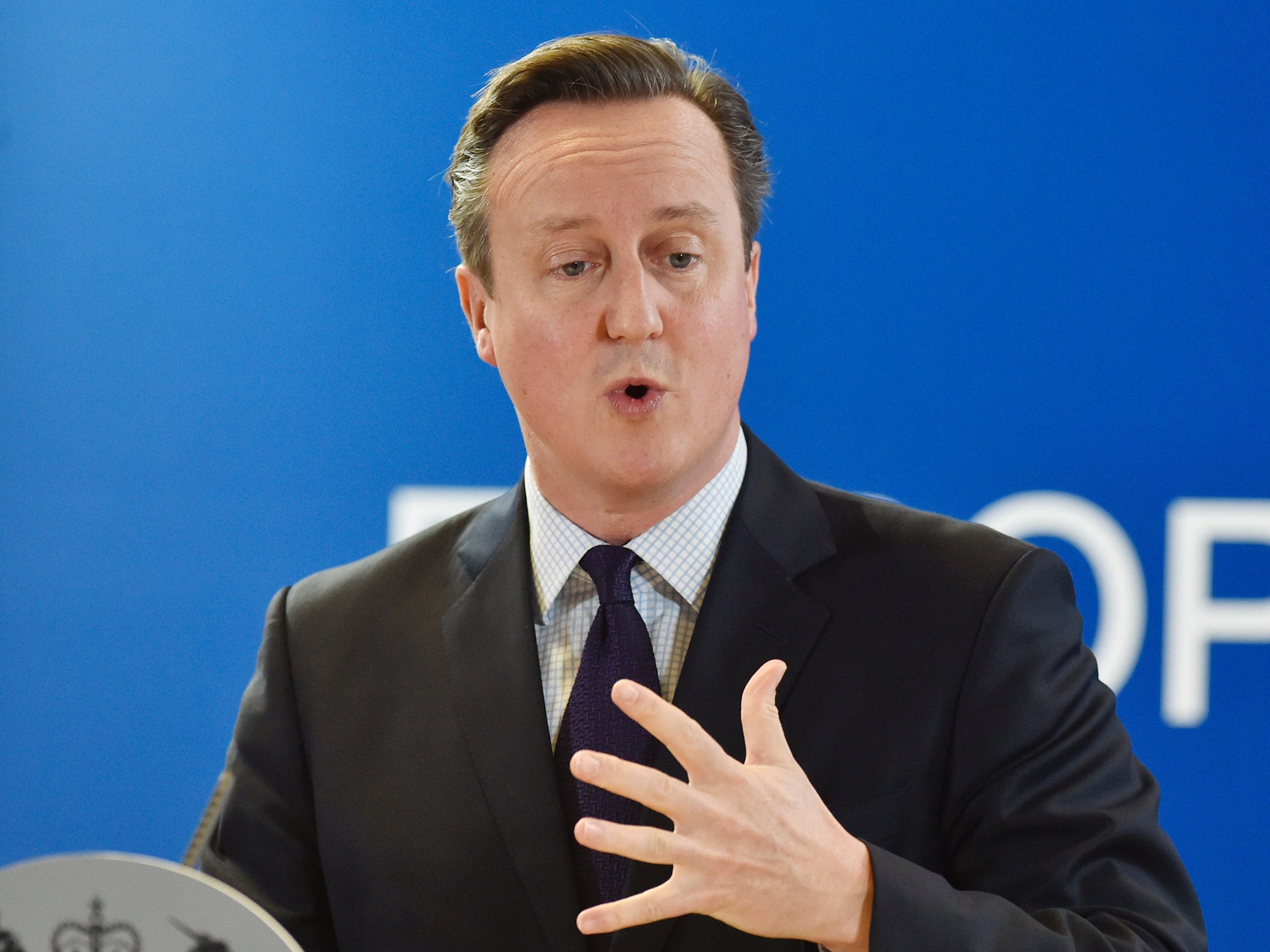EU referendum: David Cameron imposes strict rules on eurosceptic ministers as he appeals for 'unity, harmony and mutual respect'
Ministers will not be able to speak in favour of Brexit at the Despatch Box and have been told not to 'undermine' the PM's renegotiation under tight guidelines sent out in a personal minute to colleagues

Your support helps us to tell the story
From reproductive rights to climate change to Big Tech, The Independent is on the ground when the story is developing. Whether it's investigating the financials of Elon Musk's pro-Trump PAC or producing our latest documentary, 'The A Word', which shines a light on the American women fighting for reproductive rights, we know how important it is to parse out the facts from the messaging.
At such a critical moment in US history, we need reporters on the ground. Your donation allows us to keep sending journalists to speak to both sides of the story.
The Independent is trusted by Americans across the entire political spectrum. And unlike many other quality news outlets, we choose not to lock Americans out of our reporting and analysis with paywalls. We believe quality journalism should be available to everyone, paid for by those who can afford it.
Your support makes all the difference.David Cameron has imposed strict rules on his eurosceptic ministers as he pleaded for them to treat each other with "appropriate respect and courtesy" during the EU referendum.
Downing Street has published a three-page letter sent to all government ministers on Monday detailing the terms of his suspension of collective responsibility, describing it as a "wholly exceptional" situation.
Ministers will not be able to campaign for Britain to leave the EU until after the Prime Minister has completed his renegotiation package, which he hopes to do at a summit in Brussels next month, telling ministers not to "undermine" his efforts to reform the UK's membership with the 28-state bloc.
The tightly-worded letter explains that eurosceptic ministers will be barred from supporting Brexit from the Despatch Box in the House of Commons chamber but hinted that they would be allowed to speak out against the Government's official position from the backbenches.
Mr Cameron wrote in the personal minute to colleagues that he had decided to give ministers the freedom to campaign on either side of the EU referendum vote because of the "deeply-held positions of conviction" on the issue.
He makes it clear that that the civil service will be fully behind the Government’s official position, which is expected to endorse Britain remaining in the EU.
“It will not be appropriate or permissible for the civil service or individual civil servants to support ministers who opposed the Government's official position,” the letter states.
Ministers wanting to campaign to leave the EU will be free to do so but must not instruct civil servants to help them and can only ask their special advisers for help if they do so “in their own time”.
In an appeal for ministers not to repeat the damaging splits of the 1990s, which constantly undermined Sir John Major’s premiership, Mr Cameron wrote: “In the minute sent to ministers, the Prime Minister said: "Until that point - when it will become clear whether a deal can be negotiated that delivers the objectives I have set out - all ministers should continue to support the position set out in our manifesto and say or do nothing that will undermine the Government's negotiating position."
He added: "It will be very important during this period for ministers on both sides of the debate to treat each other with appropriate respect and courtesy.
"We all recognise that the UK's membership of the EU is an issue on which some colleagues have long-standing, deeply-held positions of conviction - hence my decision to set aside, on a highly exceptional basis, the normal rules of collective responsibility.
“But throughout this period, and in its aftermath, we will continue to have responsibility for governing the country and serving the public who elected us. This can only be done effectively if we remain, despite differences on this one issue, a united, harmonious, mutually respectful team."
Join our commenting forum
Join thought-provoking conversations, follow other Independent readers and see their replies
Comments